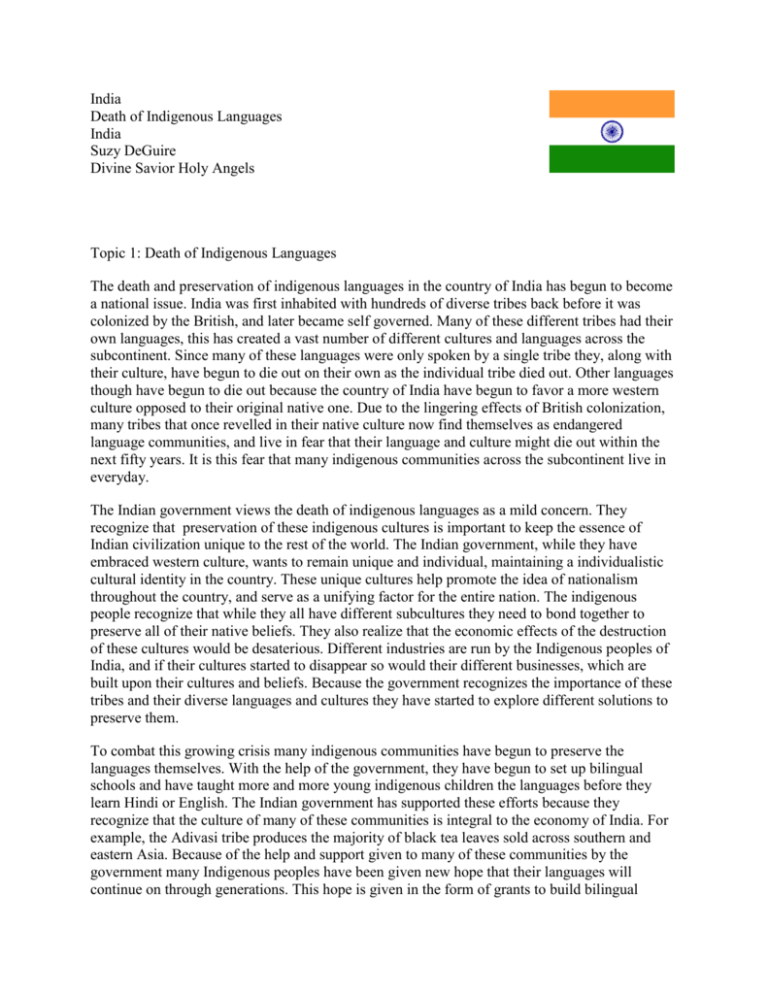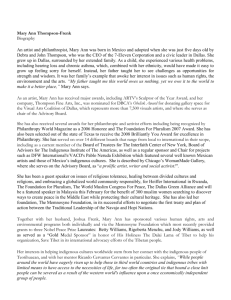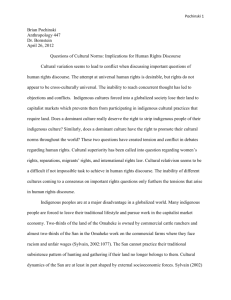India
advertisement

India Death of Indigenous Languages India Suzy DeGuire Divine Savior Holy Angels Topic 1: Death of Indigenous Languages The death and preservation of indigenous languages in the country of India has begun to become a national issue. India was first inhabited with hundreds of diverse tribes back before it was colonized by the British, and later became self governed. Many of these different tribes had their own languages, this has created a vast number of different cultures and languages across the subcontinent. Since many of these languages were only spoken by a single tribe they, along with their culture, have begun to die out on their own as the individual tribe died out. Other languages though have begun to die out because the country of India have begun to favor a more western culture opposed to their original native one. Due to the lingering effects of British colonization, many tribes that once revelled in their native culture now find themselves as endangered language communities, and live in fear that their language and culture might die out within the next fifty years. It is this fear that many indigenous communities across the subcontinent live in everyday. The Indian government views the death of indigenous languages as a mild concern. They recognize that preservation of these indigenous cultures is important to keep the essence of Indian civilization unique to the rest of the world. The Indian government, while they have embraced western culture, wants to remain unique and individual, maintaining a individualistic cultural identity in the country. These unique cultures help promote the idea of nationalism throughout the country, and serve as a unifying factor for the entire nation. The indigenous people recognize that while they all have different subcultures they need to bond together to preserve all of their native beliefs. They also realize that the economic effects of the destruction of these cultures would be desaterious. Different industries are run by the Indigenous peoples of India, and if their cultures started to disappear so would their different businesses, which are built upon their cultures and beliefs. Because the government recognizes the importance of these tribes and their diverse languages and cultures they have started to explore different solutions to preserve them. To combat this growing crisis many indigenous communities have begun to preserve the languages themselves. With the help of the government, they have begun to set up bilingual schools and have taught more and more young indigenous children the languages before they learn Hindi or English. The Indian government has supported these efforts because they recognize that the culture of many of these communities is integral to the economy of India. For example, the Adivasi tribe produces the majority of black tea leaves sold across southern and eastern Asia. Because of the help and support given to many of these communities by the government many Indigenous peoples have been given new hope that their languages will continue on through generations. This hope is given in the form of grants to build bilingual schools, and educational programs to educate the rest of the country on the importance of these unique cultures. The government hopes that by educating the country of India on the importance of these diverse cultures that the Indian people themselves will help in the preservation and celebration of the languages and culture of the Indigenous Indian people.









